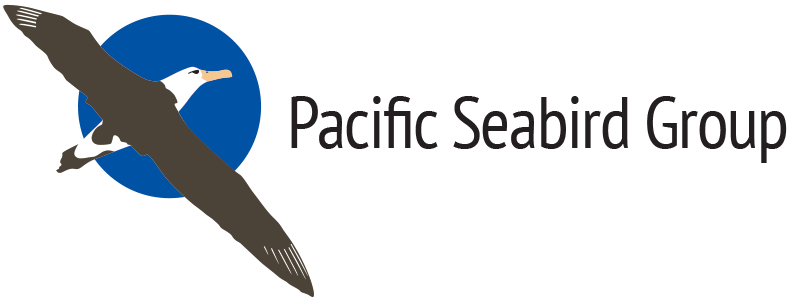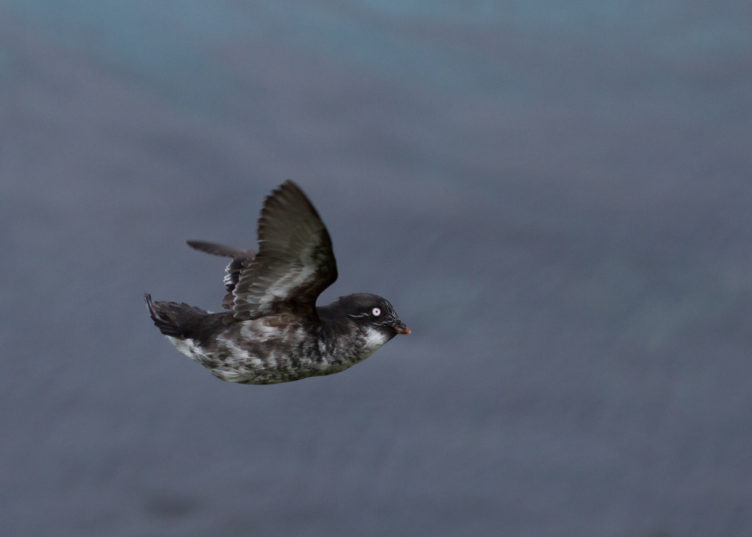Paid Technician: Seabird Technician – Infrastructure Monitoring and Minimization Project (HI)
Archipelago Research and Conservation LLC is seeking a seabird technician for a 9-month position to assist with research and management activities for the recovery of seabirds in the Pacific, including `A`o (Newell’s Shearwater), `Ua`u (Hawaiian Petrel), and `Ake`ake (Band-rumped Storm-petrel) as well as threatened and endangered waterbirds. Deadline to apply: 1/15/2024.
Agency/Organization: Archipelago Research and Conservation LLC (ARC)
Location: Hanapepe, Kaua`i, Hawai`i
Website: Click here
Job Description: Archipelago Research and Conservation LLC (ARC) is an ecological consulting company based on the island of Kaua`i. We are focused on research and management activities for the recovery of seabirds in the Pacific, with a particular focus on the endangered `A`o (Newell’s Shearwater), `Ua`u (Hawaiian Petrel), and `Ake`ake (Band-rumped Storm-petrel). We also carry out research on five Threatened and Endangered (T&E) waterbirds; the `Alae`ula (Hawaiian Common Gallinule), `Alae ke`oke`o (Hawaiian Coot), Ae`o (Hawaiian Stilt), Koloa maoli (Hawaiian Duck) and the threatened Nēnē (Hawaiian Goose).
This is an exciting 9-month full time position, offering a competitive salary and benefits, to join our team and make a real difference to the future of endangered birds, in some of the most beautiful and challenging locations in the world. Continuation of employment may be possible, dependent upon availability of funds, work performance, and operational considerations.
Our Infrastructure Monitoring and Minimization (IMMP) team document avian interactions with human infrastructure, which is a critical step in the conservation of Hawaiʻi’s T&E seabirds and waterbirds. This work will lead directly to immediate and real conservation action. The position reports to the ARC Senior Scientist and ARC Field Crew Leader – IMMP.
Primary Responsibilities:
- Using night vision, near–infrared illuminators and thermal binoculars to conduct surveys of nocturnal seabird (particularly Newell’s Shearwater and Hawaiian Petrel) passage rates at powerlines between seabird breeding colonies and the sea.
- Conduct diurnal and crepuscular waterbird surveys for passage rates at powerlines in wetland areas, using visual and auditory surveys.
- Deploy remote acoustic sensors across the island to quantify bird interactions with infrastructure. This requires hiking into remote locations.
- 4×4 driving, hiking, helicopter access to remote sites, helicopter sling loading of equipment, overnight and multi day camping.
- Working both in small teams and independently.
- Collect survey data using a voice recorder.
- Enter field data accurately and diligently onto tablets in the field, cross-reference data in the office and digitize data from night vision cameras.
- Assist with preparing field data summaries and reports.
- Perform other duties as assigned – which may include ecological monitoring of other species, public outreach and administration, and management and monitoring for seabirds at breeding colonies.
- Participate in assuring proper maintenance of project vehicles and care of project equipment. All work must be in accordance with ARC policies and guidelines.
Qualifications:
Requirements: Be legally able to work in the U.S.A (applicants must be able to present a valid U.S. passport or evidence that they can legally work in the U.S.A.) – ARC will not apply for a visa on the applicant’s behalf.
Education: BSc Bachelor’s Degree in a relevant field from an accredited four (4) year college or university in Biological Sciences.
Required Experience: One to three years of experience in terrestrial biological fieldwork. Demonstrated experience with one or more of the following: seabird-monitoring methods, take monitoring, auditory point counts, operating song meters or burrow cameras, or predator management near seabird colonies. Similar experience with other bird species or species of conservation concern may be considered. Demonstrated remote area experience critical.
Candidate must have the following abilities:
- Work independently in the field to monitor incidental wildlife take at human-built infrastructure with thermal and night vision goggles. Monitor selected endangered seabirds associated with electrical transmission, distribution infrastructure, and outdoor lighting. Concentrate for extended periods (up to four hours) using night-vision, binoculars, or scope under nocturnal conditions. Carry out irregular working hours, with most duties occurring in the evening after dark or very early in the morning (several hours before dawn).
- Use scientifically appropriate attention to detail in the field, often under difficult weather conditions, while managing field equipment and conducting repetitive tasks. Diligently collect data on field tablets while conducting strenuous physical exertion and heavy lifting.
- Hike all day on obscure trails with a heavy backpack unassisted including off-trail navigation. Carry out day and night biological fieldwork in remote areas (including densely vegetated wet forest and arid canyons) with variable temperatures, accessed by 4-wheel drive, helicopter, or extended hiking.
- Travel regularly by helicopter. Drive a car or truck and use a variety of equipment for field studies (including generators and NIR lights). Conduct night driving. Must possess a valid driver’s license and maintain it throughout the duration of employment.
- Interact on a regular basis with land managers, cooperators, and members of the public.
- Follow and adhere to all safety and operational guidelines.
- Use Microsoft Office (incl. Word/Excel), Google Sheets, and other software programs to undertake field reporting and other administrative tasks.
- Communicate effectively both orally and in writing.
Preferred Experience: Strong interest and background training in conservation issues related to avian collisions with human infrastructure (power lines, wind farms, solar fields). Strong interest in seabird ecology (particularly forest breeding seabirds). Experience working with Hawaiian birds. Experience with use of Geographic Information System (GIS) software and databases, coding in R software, electrical experience, vehicle maintenance, creative problem solving.
Wage: Competitive salary and benefits (PTO, sick leave, health, vision, dental)
To apply: For more information, click here. Applications will be accepted until January 15th. Applications will be reviewed as received and interviews scheduled accordingly. Required materials include a cover letter, current CV, and contact information for three references
Application Deadline: 1/15/2024
Start Date: 4/1/2024
Contact: Karim Hanna (karimhanna@arckauai.com)






